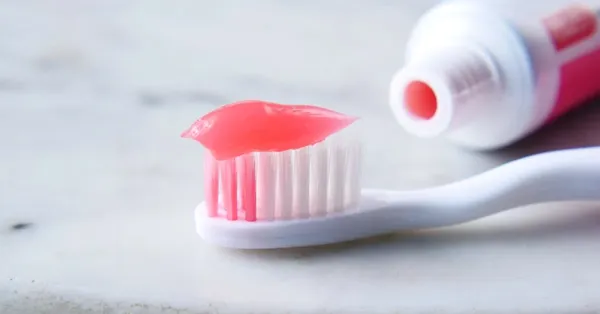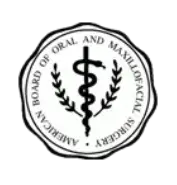The Five Most Important Tools to Have in Your Medicine Cabinet to Ensure a Healthy Smile
It's no secret that taking good care of your teeth is essential to keeping them healthy and maintaining an attractive smile. However, poor oral hygiene and inconsistent dental care can result in many more severe health problems beyond the deterioration of your teeth.
Since digestion begins with chewing your food and thereby reducing it to smaller bits and pieces, if your teeth become decayed or weakened from improper maintenance, chewing becomes more difficult, placing a far more significant burden on your stomach to break down the food you eat. With your stomach having double the digestive workload, it will struggle and eventually fail to adequately convert the food you eat into the nutrients and other compounds essential to getting the vitamins, minerals, and other resources your body needs.
The result is a cascading effect and, if not rectified, could lead to more serious health problems like an infection that can spread to the jaw, head, and neck, and even turn into sepsis, which can be life-threatening.
While it is crucial to keep your teeth healthy and see your dentist on a regular basis, there is a lot you can do at home to maintain good oral hygiene. Here are the top five most important tools to have in your medicine cabinet to safeguard your smile's health.
-
Your Toothbrush
While it might seem obvious, brushing your teeth is essential and should be done first thing when you awake, as a multitude of cavity- and plaque-producing bacteria have been growing in your mouth since your saliva hasn't been active while you've been sleeping.
How long should you brush? The standard recommendation is to brush for two minutes twice a day, ideally when you awake and again before bed, to minimize bacteria growth while you sleep. However, it would be best if you brushed your teeth after every meal, too, and especially after drinking red wine, since it stains teeth more than nearly any other beverage.
Of course, using the right toothbrush is also critical to achieving the most satisfactory results. It would be best to use a toothbrush with scientifically-designed contours that aren't too big for your mouth, which will enable you to brush most effectively, allowing you to get into all of the tight areas inside your mouth. Electric toothbrushes are great as well; just make sure to use a slow setting so you won't damage your tooth enamel. Also, selecting a toothbrush with softer bristles will let you brush your gums comfortably, which significantly helps to prevent gum disease.
It is important as well to consider how you brush your teeth. Place your toothbrush at approximately a 45° angle in relation to your gums, then gently move your toothbrush in short strokes back and forth, up and down, and in small circles, making sure to brush the outer, inner, and chewing surfaces of all your teeth.
-
Your Toothpaste
There are many different kinds of toothpaste on the market, and some are better than others. Many include mint flavoring added as a breath freshener; however, be sure to avoid any that contain sugar, artificial colors, and other unnecessary ingredients.
Generally, it's best to look for a toothpaste with fluoride, as it can help remineralize your tooth enamel and prevent cavities. Baking soda-based toothpaste is also good because of its antibacterial and anti-inflammatory properties, and there are a wide variety of specialized toothpaste options for those with sensitive teeth, too. If you drink coffee, tea, or red wine, you might consider a toothpaste with added teeth whitening features, such as baking soda and hydrogen peroxide.
-
Your Floss
Brushing your teeth with the right toothpaste is great for removing stains, bacteria, plaque, and other unwanted elements from the surface of your teeth, but brushing the front, back, and crown of your teeth does little to reach the other 40% of your total tooth surfaces - the spaces in between your teeth.
Food particles, plaque, and bacteria left to rot in your interdental spaces can eventually cause tooth decay. The way to clean that bothersome 40% is by using dental floss to clean in between your teeth at least once per day, preferably before bedtime, but ideally also in the morning after breakfast.
The best floss to use is waxed or Teflon, which allows you to get into all of those tight spaces and lowers the risk of your floss shredding and tearing while you're using it.
If you have trouble using traditional string floss, you can use a dental harp or flossette to clean between tooth surfaces quickly and easily.
-
Your Tongue Cleaner
Since your tongue tends to host an abundance of oral bacteria, keeping it clean won't just improve your overall oral health, but help your breath stay nice and fresh as well. One way to disinfect your tongue is to brush it with your toothbrush once you've finished brushing your teeth. Another way is by using a tongue scraper, which is a dental tool specifically designed to help you clear away the bacteria that collects on your tongue.
-
Your Mouthwash
The foregoing are fantastic ways to keep your teeth, tongue, and breath fresh, clean, and healthy, but there is one more thing to consider: mouthwash. While it's not an acceptable substitute for daily brushing and flossing, the use of a minty mouthwash is an excellent final step to add to your daily oral self-care.
The two primary types of mouthwash are over-the-counter and prescription. Each significantly helps to reduce plaque, gingivitis, tooth decay, and bad breath. The prescription version is generally more aggressive, while the over-the-counter brands, flavors, and types include everything from being alcohol-free, less-stinging, and extra-minty. Some even offer teeth whitening and longer-lasting freshness. The choice is yours to make.
Unless directed by a dentist, children younger than 6 years old shouldn't use over-the-counter mouthwash, as they may be tempted to swallow it.
Using a mouthwash:
- kills bacteria in your mouth,
- rinses away any little leftover bits of food that may remain on your teeth or gums, and,
- leaves your mouth and breath feeling and smelling fresh.
With these five items in your medicine cabinet, you are well on the way to attaining and maintaining a healthy smile! To learn more about how to get the most out of your home-care oral hygiene, and to discuss any issue with your oral health, contact Oral Surgery DC for a consultation today (www.woodviewos.com/contact-us).






5 Stars
based on 48 reviews
5 Stars
based on 15 reviews
5 Stars
based on 11 ratings